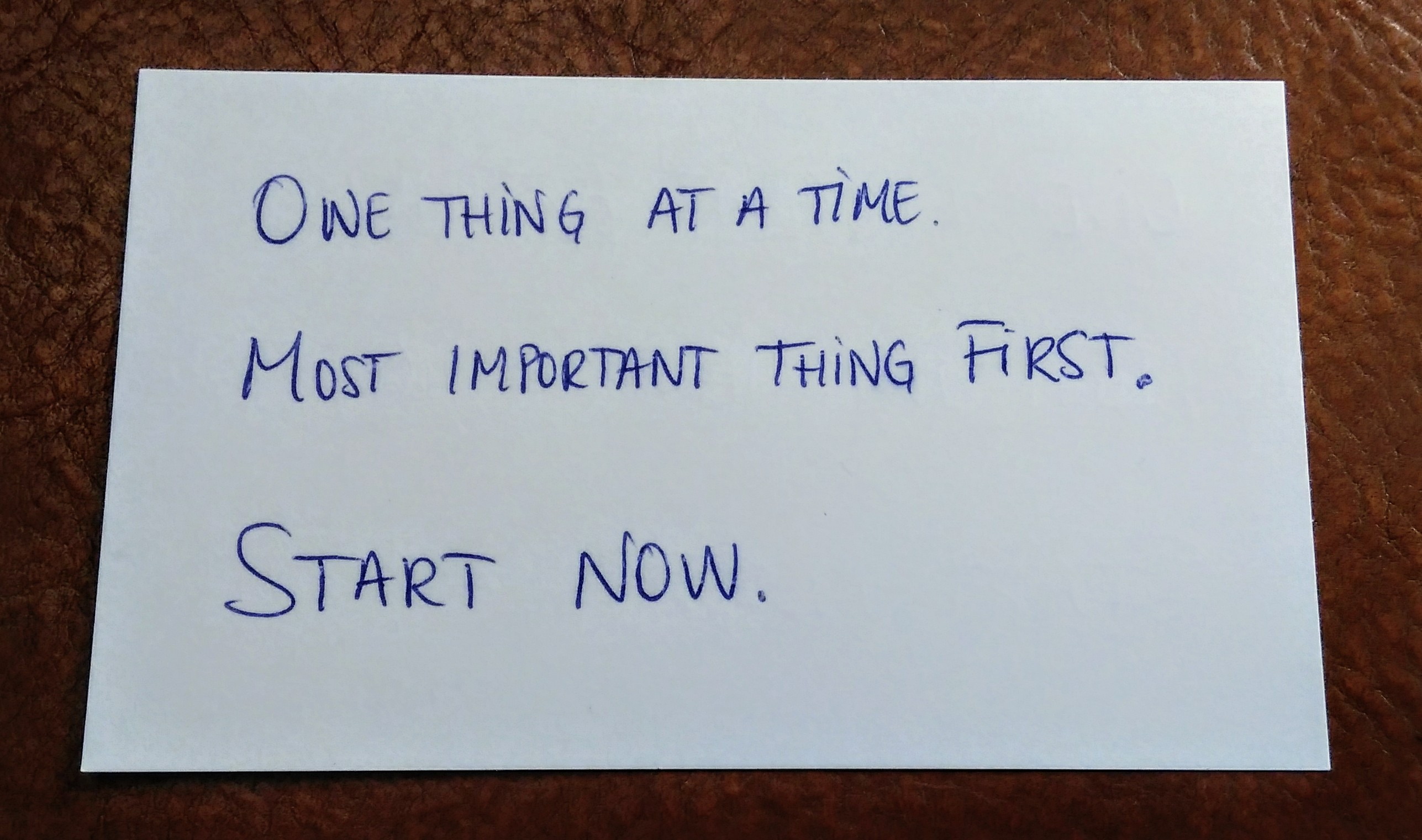POSTS
A small hiatus, and a Monday Mantra
by Luis P. Prieto, - 4 minutes read - 771 wordsA shorter post this week, to warn you about a small hiatus in the blog (due to taking a “disconnected break”), and to propose a new post format: Monday Mantras. As the first exercise in this format, I propose you use the best shortest productivity advice I’ve ever read.
As I write these lines, my bed is littered with the contents of the backpack I will use in a long hiking trip through the North of Spain. This trip is not only a holiday, but also a “disconnected break”1. So… you may not see a post here for the next two or three weeks. Sorry!
This week, as the academic year nears its end (read, lots of course grading), I did not have too much time to read or write for the blog. Thus, it is the perfect time to try out a new kind of post that I’ve been pondering about for several weeks now: the Monday Mantra.
What is a “Monday Mantra”?
A mantra is a short utterance, word or sentence, believed to have psychological or spiritual powers. They originated in ancient India (using Sanskrit language), and are used in many Asian spiritual traditions like Hinduism or Buddhism and many others. In modern times in the West, you can find a similar concept in short sayings, maxims, slogans, principles or heuristics. The “home sweet home” signs people hang in their living rooms, or motivational posters people put in their offices, all fall into this broad category. They often are abstract enough to apply and be useful in many different situations, as long as we remember them (which is why people hang them in visible places, as reminders).
The Monday Mantra is a simple, practical exercise that builds upon this category of short but useful reminders:
- On a Sunday like today, in the daily review and preparation for your next day (mentioned in a previous post), pick up an index card, big post-it or other pocket-sized piece of paper.
- Write the mantra on the card, in easily-visible writing.
- Put the card somewhere, making sure that you will see it when you get up (e.g., in your nightstand).
- On Monday morning (hence the name), when you get up, take a look at it, and maybe stop for 1-2 mins while you get your bearings. Think how it can be applied today. You can also take the card in your pocket for the whole day, looking at it at random times when you surprise yourself taking it out of your pocket. Or you can put copies of it in different places as reminders, in your office desk or any other place where you work frequently. The point is to be reminded daily of it, to see if its wisdom helps you change your behavior in a positive way.
- Repeat the previous step also on Tuesday, Wednesday, etc. as you get up and go on with your days. Take 1-2 weeks doing this, until it becomes second nature to apply it.
- That’s it. If you journal (something I also recommend), you can reflect at the end of the day if you applied the mantra, whether it worked, and how did it feel.
These week’s Monday Mantra: the best shortest productivity advice
As a first example for you to try, I’ve chosen this ingenious 11-word pithy advice on productivity, which I first encountered in a well-known productivity website:
Its simplicity is deceiving – the hard part is remembering to apply it. This few sentences summarize a lot of productivity advice I’ve read from many sources, from productivity systems to time management gurus and other generally busy but successful people. It goes to the heart of many Ph.D. students (and my own) effectiveness problems: procrastination, multi-tasking, dispersion of efforts… A funny retelling of similar time management principles, in comic strip form, can be found here (kudos to Adolfo for pointing this one out to me).
I really encourage you give Monday Mantras a try, and see if it makes a difference in your productivity. If you tried it, please please please please let me know how it went in the comments below. In general I’d love any feedback on this new, shorter advice/post format and the exercise itself.
-
Not too different from the now-trendy “digital detox”: a period in which you drop most of your digital consumption and media use. There is still not a lot of scientific evidence on its effects, but there are preliminary studies showing that this kind of disconnection from continuous online exposure (mostly through our phones) may help lower your stress. ↩︎

Luis P. Prieto
Luis P. is a Ramón y Cajal research fellow at the University of Valladolid (Spain), investigating learning technologies, especially learning analytics. He is also an avid learner about doctoral education and supervision, and he's the main author at the A Happy PhD blog.
